Netflix's 'Schumacher' Is Powerful but Uneven
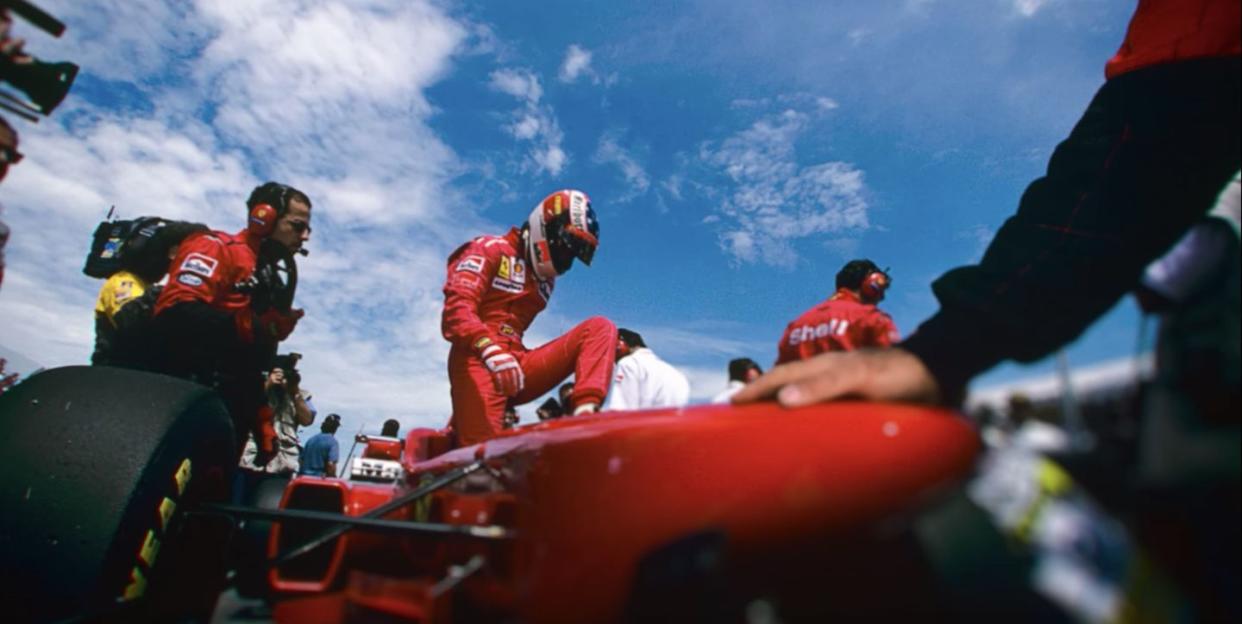
The style of Netflix's Schumacher will be immediately familiar to anyone who saw the award-winning 2010 documentary Senna. The film that hit at the very beginning of the sports documentary craze 11 years ago omitted any sort of narration or core plot device to tell the story of one memorable man on a straightforward timeline through archival footage, a then-welcome change that has been replicated often since. Schumacher does an admirable job of adding to the format with a recognizable cast of A-list Formula 1 voices interspersed in talking head interviews throughout, but it fails to capture a story in the same way. Instead, it finds its strengths in the little moments where the figures who knew Michael Schumacher reflect on the person he was.
The film dives in at the beginning of Schumacher's Formula 1 ascent, his legendary one-off start at Spa for Jordan. That story has been retold countless times, mostly by Eddie Jordan himself, but the short version is this: Jordan suddenly found himself with an opening at the team before the Belgian Grand Prix because his driver, Bertrand Gachot, was sentenced to two months in prison for spraying tear gas at a taxi driver. Jordan tested then-Mercedes sports-car driver Schumacher on the recommendation of Schumacher's manager, Willi Weber, despite a significant lack of high-level open-wheel experience, only to immediately realize he had lucked into the sort of prospect the series hadn't seen in decades. He put Schumacher in the car, the German driver qualified a shocking seventh, and the resulting DNF one lap into the race was so unimportant to both that not even Jordan was surprised when Schumacher signed a full-time contract with Benetton days later. Jordan's legal challenge to keep Schumacher in his car failed, and the rest is history.
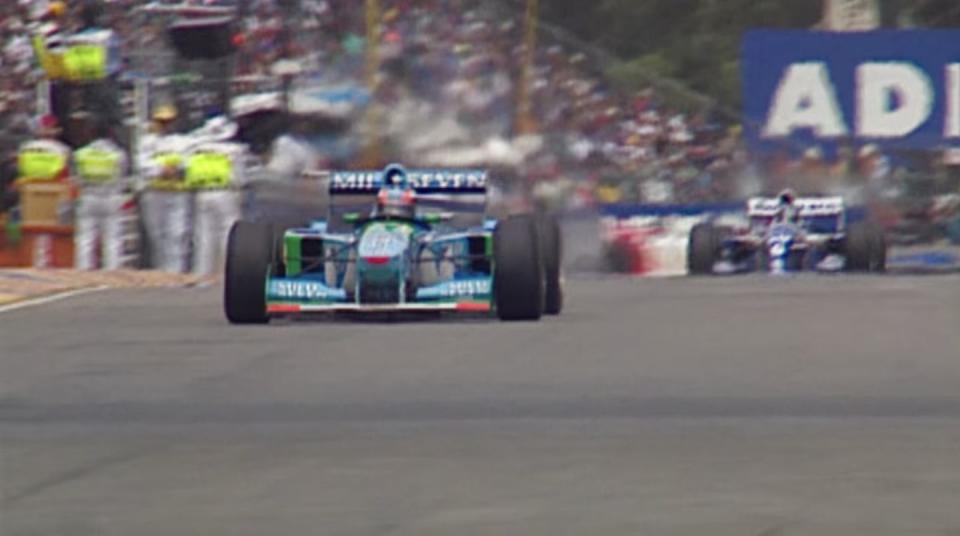
The documentary cuts most of this. The first of many legendary tales is cut down to just the manager's recommendation, the qualifying performance, and the resulting Benetton deal. It is the first sign that this is going to be an oddly paced retelling of the Michael Schumacher saga.
The pacing through the Benetton years is no less strange. Schumacher's shocking jump from interesting prospect to championship contender in a car that had been floating around third in the constructors' standings since the late Eighties is brushed over as an inevitable outcome. Interesting anecdotes about Senna are punctuated by the sudden interpolation of the live broadcast feed of his fatal accident. Schumacher's most iconic and controversial moment in the car, an Adelaide crash with Damon Hill that would eventually determine the 1994 championship, is covered in detail, but little of that time is actually focused on debating the intentionality or outcome of the hit. When it quickly moves to the Ferrari years, the viewer expects a shift into tighter focus. That never comes.
Instead, Schumacher's rivalry with Mika Hakkinen is simplified into a more broad storyline about his efforts to take Ferrari back to the front of the grid. The company claim that Ferrari simply belonged there after more than a decade and a half of serious struggles was quoted over and over again without any real challenge, then the 1997 championship saga was boiled down to just the controversial crash that led to Schumacher's disqualification from the entire season and Jacques Villeneuve's one World Championship title.
Senna hits its stride when its hero is put into context by focusing on a legendary rivalry with Alain Prost. While Prost actually argued heavily against that characterization, it gave weight to the highs and lows of Ayrton Senna's career and made the biggest on-track moments between the two feel like part of a long pattern of characteristic behavior, not odd outcomes. Schumacher has no interest in litigating the crashes that won or lost the 1994 and 1997 championships. It has little interest in Schumacher's greatest on-track rival, either.
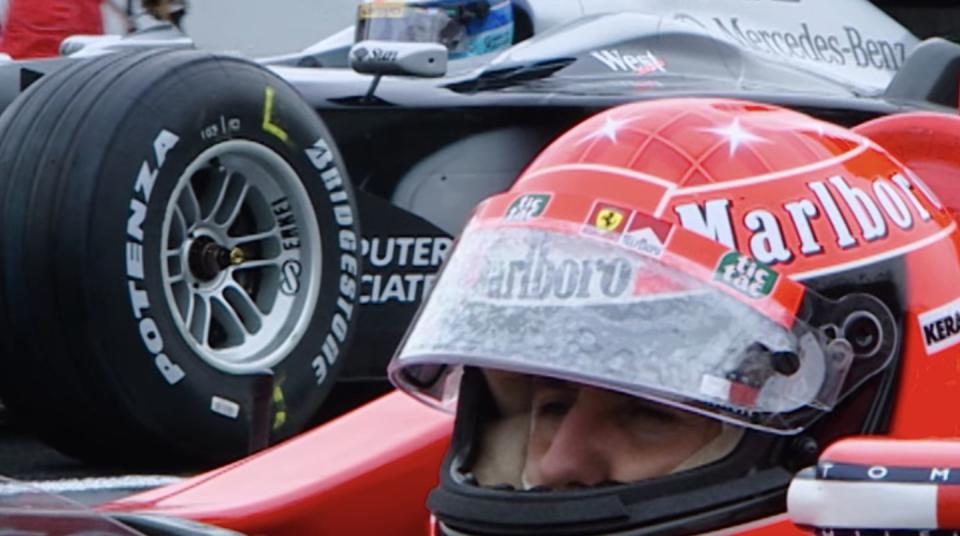
Hakkinen, who won two titles at McLaren during Schumacher's Ferrari years and served as the foil in the way of our star's first title with Ferrari in 2000, is actually one of the people interviewed for the film. Despite that access, he lingers mostly as the victorious name behind clips of Schumacher's biggest defeats. Even his appearance in the film's most powerful archival clip, an interview where Schumacher breaks down in tears when asked to reflect on what it means to pass Senna in career wins and Hakkinen asks the interviewer for a break to let his peer feel the intensity of the moment, goes unmentioned in the parts of the interview included in the film. Once Schumacher takes his decisive victory to end the 2000 season, Hakkinen does not show up again.
Despite the confounding earlier claim that Ferrari only had glory years before its Eighties cold streak, the documentary does not actually spend any time on the greatest era of the team under Schumacher and Ross Brawn's steady hands. It washes over the five consecutive titles as the obvious continuation of the 2000 title, then skips the two years Fernando Alonso beat Schumacher with the help of the Renault team that was once Benetton. A controversial ousting that forced Schumacher into an early retirement is told only through a 2006 press conference, then an unsuccessful but significant turn with Mercedes four years later is distilled down to commentary on Schumacher's own lack of interest in the ride.
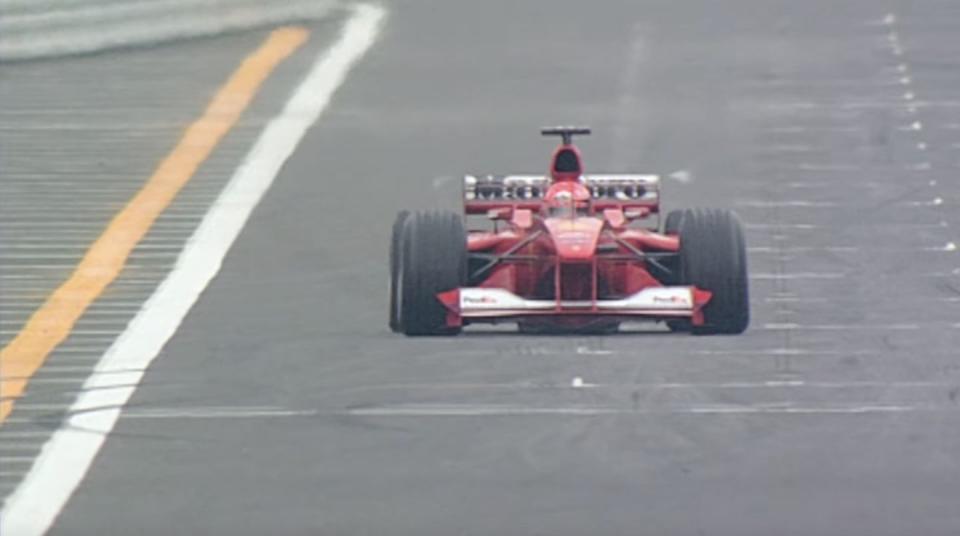
But despite its issues as a sports documentary, Schumacher has one exceptional trait. The film was made in close collaboration with Schumacher's immediate family, which means his wife, brother, father, and children were interviewed extensively. Each spends some time to reflect on what he means to them. In those moments, you finally get what makes a story like this special. It shows a man that has always appeared aloof and shy on camera at his best off the track. When his wife and children start to talk about living in a world where his brain injury has left their lives fundamentally changed, you feel how much they miss Schumacher at his healthiest and how much they still appreciate his presence today.
Most subjects interviewed speak in their native language, rather than in English, and it makes their words about Schumacher all the more powerful. It is no surprise that his son, current Haas F1 driver Mick Schumacher, has such meaningful things to say about his father, but it is particularly stunning when the same affection comes from the other world-famous personalities who looked up to him. In one particularly moving interview, four-time world champion Sebastian Vettel speaks about Schumacher in German with the sort of passion that can only come from someone who still holds their hero in the same regard they did when they first saw him race.
Don't watch Schumacher expecting a comprehensive and intimate sports story on par with The Last Dance. Despite its best attempts, this is not the film's strong suit. Watch Schumacher to understand why the seven-time world champion is so deeply admired even as his records fall and his sport moves on to a new era.
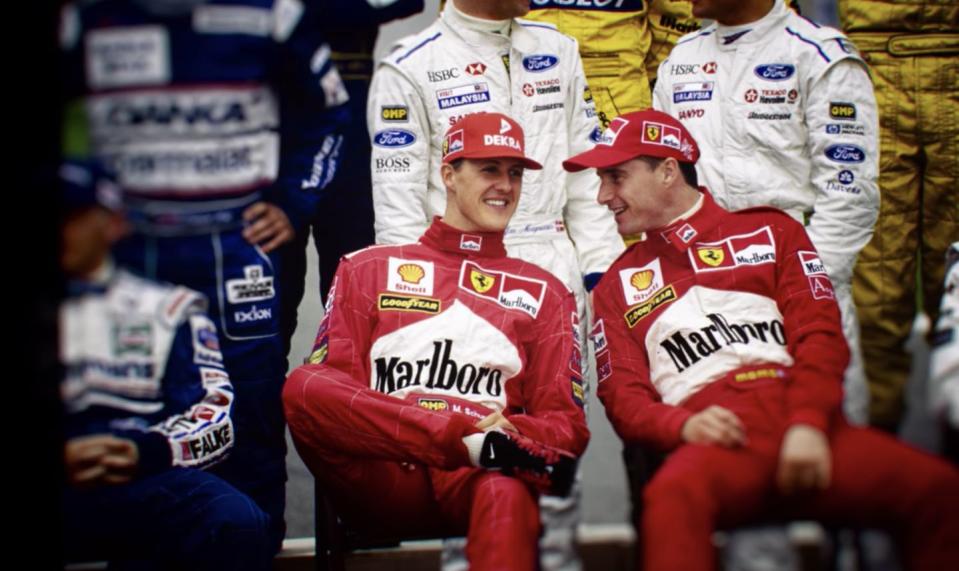
You Might Also Like


